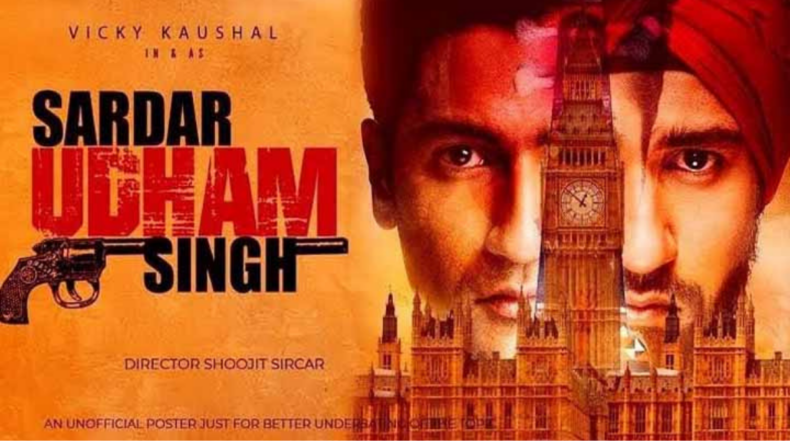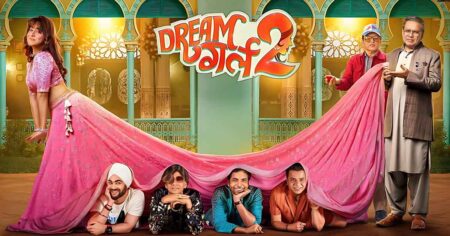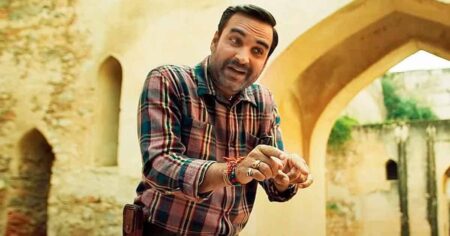Vicky Kaushal turns in a nuanced performance in tune with the film’s script.
A movie that stole the heart of everyone-
Carefully read why Sardar Udham Review the layered biopic shows a freedom fighter without succumbing to hyper jingoism? Growing up, I, like numerous Indians, believed that the line “an eye for an eye leaves the whole world blind” came from M.K. Gandhi. I had internalised that misattribution so well that it didn’t even cross my mind to cross-check it. That mindset also marked many Bollywood patriotic dramas. Such films were not as interested in freedom fighters as people but as symbols – reducing them to scrappy generalities and distilling their complexities into neat commodities for a multiplex audience. With time, which got worse: Enough has been written about Bollywood’s bullying nationalism over the last seven years.
But Shoojit Sircar’s latest, Sardar Udham, streaming on Amazon Prime Video, declutters such insecurities to present something rare: a revolutionary and his ideologies, a rebel and his (transcontinental) allies, a person and his personhood – untainted by narrow-minded stains that revel in facile generalisations or crass broad strokes. Written by Ritesh Shah and Shubhendu Bhattacharya, Sardar Udham discards the chronological sweep central to most biopics and adopts a non-linear narrative to underscore a significant Indian story.
If at all one could reduce human life to a few significant episodes, then Udham’s (Vicky Kaushal) journey would have read the following: witnessing the Jallianwala Bagh massacre (April 1919); assassinating the Lieutenant Governor of Punjab, Michael O’Dwyer (March 1940); getting hanged (July 1940).
Barring Udham’s death, the other events don’t fall into a neat chronological pattern – eschewing an explosive opening or climax – because Sircar doesn’t treat the freedom fighter’s life as a ‘highlights package’, extracting the most dramatic mileage from an already charged story. He first wants to understand the film’s centrepiece – the different interlinked parts of the ‘big picture’ – hoping that those choices also produce an entertaining movie. This allegiance may have helped the filmmaker nail an elusive target: cracking the biopic code.
Sardar Udham opened in a jail in Punjab in 1931, when the freedom fighter had just been released. It then juggles two timelines for a bit: Udham fleeing from the Punjab police and his early days as a revolutionary, when he was inspired by, and befriended, Bhagat Singh (Amol Parashar). The split narrative returns after Udham has killed Dwyer (Shaun Scott): one part is centred on the present-day interrogations by a Scotland Yard officer, Swain (Stephen Hogan), and the other depicts the freedom fighter’s journey in the UK from 1934 to 1940. This choice persists until the end, alternating between the Jallianwala Bagh massacre and Udham’s final days.
Most homegrown patriotic films depicting the Crown rule flatten the individualities of the freedom movements and their leaders. Such self-serving exercises, primarily aimed at the box-office riches, cannot transcend the most basic – and the filmiest – insights: oppressed Indians, oppressive Britishers; hunger strikes; jails; revolts; assassinations. It’s not just history for dummies but the brain-dead. They isolate the audiences from the true core of the country, leaving them with a few buzzwords – an extension of that mindset is daily broadcast on news channels, Twitter timelines and casual conversations, deploying such bastardised terms as “sedition”, “anti-national”, “urban Naxals”, it is a long list.
Sircar’s movie understands that only a ‘360-degree-filmmaking’ – marked by contexts, contradictions and complexities – can help grasp the true essence of Indian martyrs. Because isn’t that the whole crux of vitriolic debates these days: Who is an Indian — and what is India? Questions that were not resolved in 1947, questions that still tear the country apart. And that matters a lot because if you don’t know your story, your history, someone else will write it for you, and then you’ll have no control over how that is told. It’s one of the reasons Sardar Udham is a rare gem.
In this article you read why Sardar Udham Review: The layered biopic shows a freedom fighter without succumbing to hyper jingoism? Now, click below to read Akshay Kumar’s movie OMG 2’s.
Read More:- Akshay Kumar’s OMG 2’s first looks out













